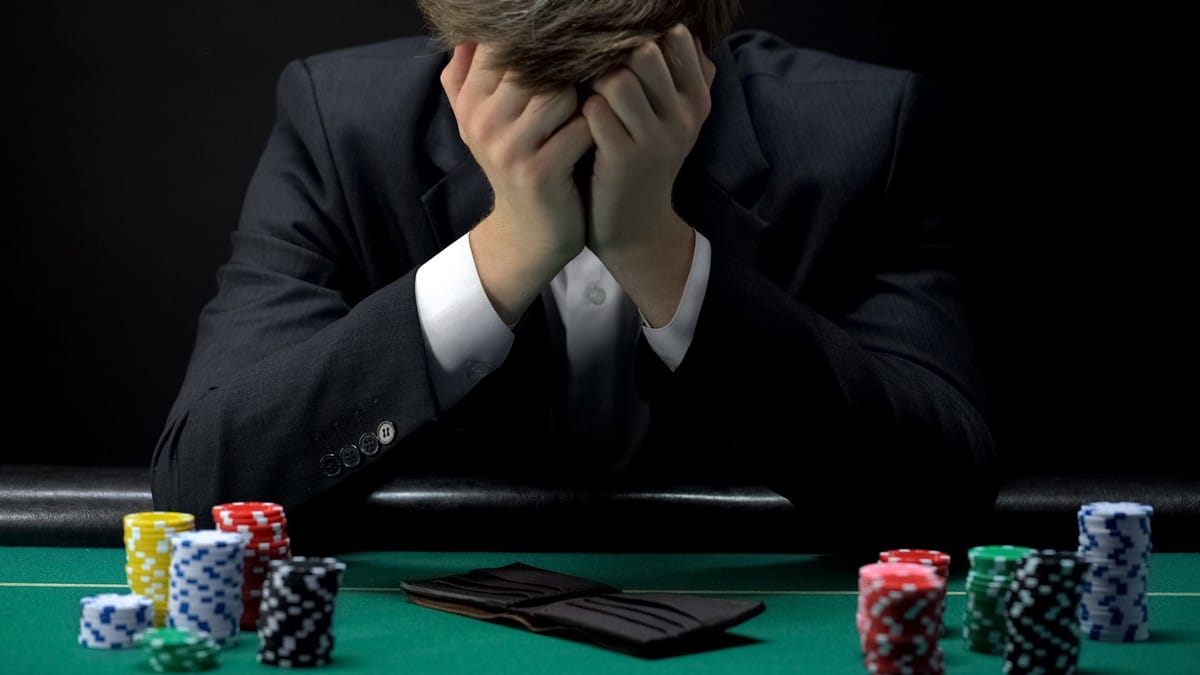Can’t Stop Gambling, Getting Help For Gambling Addiction & Problem Gambling

We have outlined the measures you can take to manage your addiction if you feel like you can’t quit gambling right now.
Even while it might seem impossible right now, it is quite possible to live a life free of gambling, even if you aren’t able to see it just yet. You can regain the enjoyment of a life that isn’t controlled by a gambling addiction by working diligently, being committed, and finding the correct support system.
Given that you are reading this, it is likely that you have begun to realise that you have a gambling problem. This is a good beginning, and you should be proud of it. Real change frequently begins with the acceptance that there is an issue that needs to be solved.
We’ll go through how to stop gambling as well as professional treatment options that are accessible for those who believe they can’t stop and wish to overcome their addiction.
What is gambling addiction/problem gambling?
Anyone from any background can develop gambling issues. Your gambling transitions from an enjoyable, risk-free distraction to an obsessive fixation with negative effects. A gambling problem can damage your relationships, interfere with your job, and cause financial ruin whether you wager on sports, scratch cards, roulette, poker, or slots in a casino, at a racetrack, or online. You might even take on massive debts or even steal money to gamble—things you never dreamed you’d do.
Gambling addiction is an impulse-control disorder, often known as pathological gambling, compulsive gambling, or gambling disorder. Even when you are aware that the odds are against you or that you cannot afford to lose money, you will continue to gamble whether you are loaded with cash or broke. If you’re a compulsive gambler, you can’t stop the urge to play, even if it hurts you or the people you care about.
Of course, it’s possible to have a gambling issue without going completely overboard. Any gambling behaviour that interferes with your life is a gambling problem. If you have a gambling problem, if you are obsessed with it, spend an increasing amount of time and money on it, chase losses, or gamble despite negative effects on your life.
It’s common for other behavioural or emotional issues to coexist with a gambling addiction or problem. Many problem gamblers also struggle with drug or alcohol addiction, untreated ADHD, stress, anxiety, depression, or bipolar disorder. You’ll also need to deal with these and any other underlying factors if you want to overcome your gambling issues.
You can do many things to deal with the issue, mend your relationships and finances, and finally recover control of your life, even though it may seem impossible for you to stop gambling.
Gambling addiction signs and symptoms
Gambling addiction is referred to as a “hidden illness” because there are no evident physical indications or symptoms, unlike drug or alcohol addiction. Additionally, most problem gamblers downplay or reject their issue, even to themselves.
However, you might have a gambling problem if you:
- Feel the need to be secretive about your gambling.
You might bet in secret or exaggerate how much you bet because you think people won’t understand, or you’ll surprise them with a big gain.
- Have trouble controlling your gambling.
Can you stop gambling once you get started? Or are you forced to gamble till you have lost every last penny, increasing your stakes in an effort to recover lost funds?
- Gamble even when you don’t have the money.
You might gamble until your last penny is gone and then go on to spending money you don’t have, such as money for bills, credit cards, or items for your kids. You could feel pressured to steal, sell, or even borrow to get gambling money.
- Have family and friends worried about you.
Denying the situation only fuels it. Pay close attention to your worried friends and family members. Asking for assistance is not a sign of being helpless. Even though it’s never too late to change for the better, many older gamblers are hesitant to talk to their adult children if they’ve lost their inheritance through gambling.
The Impact of Gambling Addiction
The consequences of addiction may be lethal. A gambler can spend their life savings at the bookies in a matter of minutes, even in the short term. However, if the proverb “the house always wins” is kept in mind, financial ruin is almost a given over the long term. One is more likely to lose everything the more and longer they bet. Of course, there are kinds of gambling that offer massive, life-altering rewards for a very small investment, but even here, there is no guarantee that such great sums of money will endure for very long. For instance, the vast majority of significant lottery winners spend their gains within ten years.
Stories of gamblers who have abandoned not just themselves but also their families are littered throughout history, and even in the absence of such tragedy, their deceit and erratic behaviour can irreparably damage relationships. Even being with them can be excruciatingly uncomfortable when someone has a gambling addiction. As a result, even when a gambler isn’t trying to isolate themselves, they may find themselves without the company of even their most cherished friends. The financial ramifications for a gambler’s spouse or partner, as well as any kids or other dependents, can be terrifying, particularly when both parties hold important assets like property.
Problem gambling can have long-term health ramifications, with depression frequently resulting in self-harm and suicide, as well as physical health problems due to stress, improper eating and sleeping habits, and other variables. Gambling addictions commonly overlap with drug abuse disorders, which have their own physical and mental health repercussions. Their health and safety (and perhaps that of their loved ones) may be at risk if a gambler employs unconventional finance methods, such as borrowing from potentially violent loan sharks or engaging in criminal activities.
A gambler’s reputation can be quickly destroyed, and their credit score can be permanently damaged (though bankruptcy can have even more severe effects). Once someone gains a reputation as a problem gambler (or “degenerate,” in more judgmental terms), it can be challenging to shed it, and many people are reluctant to place any trust in a gambler for fear that it will be betrayed.
6 Ways to Stop Gambling
Self-exclude
Self-exclusion might prevent you from visiting the locations and websites that you frequently utilise for gambling. Additionally, it can prevent you from getting any marketing materials that you might find upsetting.
Talk to the person closest to you, whether that is a partner, parent or friend
Though it may be unsettling, talking about how you feel if you can’t quit gambling is a crucial step that you must take.
Think carefully about what you want to say before the conversation. Talk about when it first happened, when it became an issue, and how it makes you feel. You might also wish to talk about the effects it has had, particularly any financial consequences. Consider discussing your plans for assistance as well as any specific things you want the other person to undertake to support you as you give up gambling.
It’s crucial to keep in mind that you cannot know how someone else would respond.
They might feel relieved that you have been honest, angry, sad, or both. Additionally, be ready for questions as they are likely to come up. Be forthright and honest so that you can begin to mend the connection that your gambling may have harmed.
Stick to a strict day-to-day plan
Maintaining a busy schedule and good day planning can help to reduce the temptation to gamble.
Make a list of your favourite activities and plan them for when you’re most likely to feel like gambling. Try engaging in more competitive or adrenaline-inducing activities. These might provide you with the same high that you would have had from gambling, but without any of the drawbacks. Additionally, be sure to surround yourself with non-gamblers during the day.
Keep a daily journal
You can begin to comprehend the ideas and emotions that lead to your desire to gamble by keeping a regular notebook. You might discover that these desires come on when you’re bored, under pressure, or in search of an escape. Consider these potential triggers in-depth and devise coping mechanisms to handle them going into the future.
You may have withdrawal symptoms after you stop gambling, which include depression, anger, tremors, and heart palpitations. In your notebook, make a note of these: this is an excellent location to examine these emotions.
Attend Gamblers Anonymous
You can meet individuals who believe they cannot quit gambling, as well as those who have given up gambling through Gamblers Anonymous. People have the opportunity to share their experiences, assist others, and support one another in groups.
In addition to offering forums and chat rooms on their website for online assistance, Gamblers Anonymous holds meetings all over the UK.
Get professional treatment for gambling addiction
There are several solutions available at Compare Rehab UK for gambling addiction treatment. We will conduct a free initial evaluation at one of your first appointments with the team to establish the best course of therapy for you. However, people with dual diagnoses may need to schedule a fee-based visit with a consultant psychiatrist to be evaluated.
People who believe they can’t quit gambling are frequently advised to enrol in a residential addiction treatment programme. It provides you with the breathing room, time, and expert assistance you need to begin your recovery. You can begin to address the effects gambling has had on you and the people you care about through group and one-on-one therapy sessions, seminars, workshops, and individual working time. You can also identify triggers for your addictive behaviours and learn coping mechanisms for navigating your life moving forward.
For those with gambling problems, there is also the option of daily treatment sessions, in which you go to therapy for a number of full or half-day sessions. This programme is especially helpful for those who could use organised continuous support but may not require round-the-clock care and assistance.
Another alternative for outpatient treatment is weekly one-on-one or online counselling sessions. You have the chance to talk about your gambling with a licenced therapist during these sessions and develop coping mechanisms.
Get Help Today
Call 0800 999 1083 for more information on how Compare Rehab UK can help you with gambling addiction treatment and rehabilitation.





